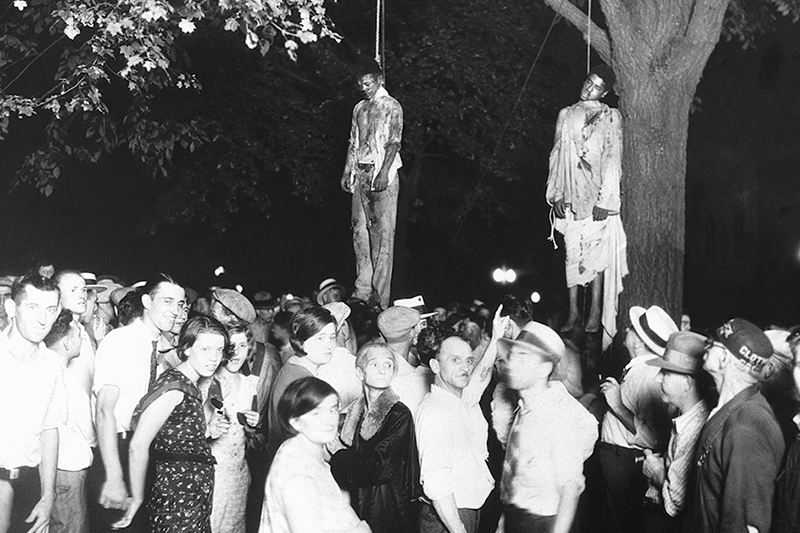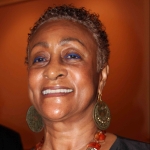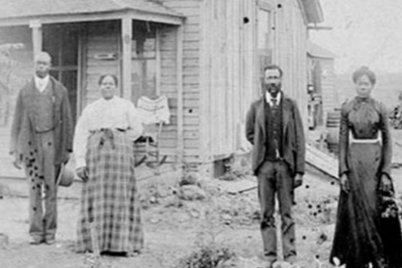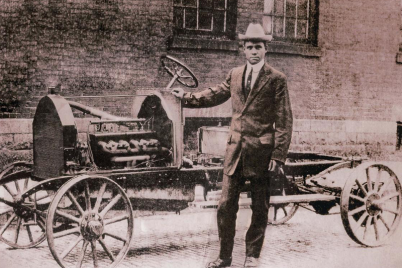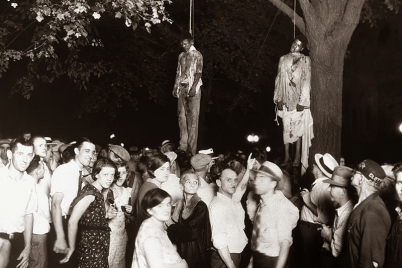By Attorney Jacqueline Hubbard, President, ASALH
The word “terror” is defined by the “Funk and Wagnalls Standard College Dictionary” as “an overwhelming impulse of fear; extreme fright or dread.” The word “terrorize” is defined by the same authority as “to coerce through intimidation.” Further, “terrorism” is defined as “the act of terrorizing.”
Since the advent of the enslavement of black people in North America in 1619, the United States has continually engaged in terrorism based upon racialism or the color of a person’s skin. The history of this system of terror is real: 250 years of cruel enslavement, forced family separations, beatings, and brutal working conditions without pay.
After the Civil War and Reconstruction, the terror continued with distinctions and separations based upon color and enforced by violence. The discrimination continues today on every level, including, among other things, denial of voting rights, lynchings, mass incarceration of both men and women.
Terror has been used throughout American history to control black people and force them to bend to those in power based upon a real threat of death. Four hundred years of terror has had a very detrimental effect on the country and its symbols of freedom: happiness, liberty, and justice for all. It has been most brutal in the South but has existed throughout the country, particularly in the Midwest and West.
After the Civil War, most southern states, and later Border States, passed Black Codes that denied blacks fundamental human rights and introduced a psychological terror that was reinforced by the old violence. “Jim Crow” became a kind of shorthand for the laws, customs, and etiquette that segregated and demeaned African Americans, primarily from the 1870s to the 1960s.
This racial hierarchy defined American life through a set of apartheid laws and practices that operated primarily in southern and Border States between 1877 (the end of Reconstruction) and the mid-1960s. During the Jim Crow period, there were separate hospitals for blacks and whites, public and private schools, churches, cemeteries, public restrooms, public accommodations, and even separate prisons.
In most instances, the black facilities were grossly inferior, older, smaller, less-well-kept, and less conveniently located. In other cases, there were no black facilities at all; no “colored” public restroom, beaches, and no place to sit or eat.
As The Equal Justice Initiative has acknowledged its book “Segregation in America,” America’s history of racial inequality continues to haunt the country.
“The genocide of Native people, 250-year enslavement of Black people, adoption of ‘racial integrity’ laws that demonized ethnic immigrants and people of color, and enforcement of policies and practices designed to perpetuate white supremacy are all part of difficult past.”
Americans of all colors must decide to truthfully confront our history — as violent and painful as this may be — to overcome it. America is not South Africa. America has never held a single “Truth and Reconciliation” hearing.
The past can no longer be ignored because the failure to do so is once again tearing our nation apart. There has been a continual, almost universal, struggle to contain the ugly history of America’s past as it pertains to people of color. There is almost a fear of the truth, both by its victims and its perpetrators.
The racial schism in America is almost as deep as it has ever been and becoming ever more dangerous. It simply has to be truthfully confronted and then overcome.
Racism can no longer remain hidden and something we never talk about because it makes us uncomfortable. It cannot, any longer, be lied about.
The truth of the use of terror to constrain full participation in American society by people of color is slowly coming out. Hundreds of years of racism and terrorism have created a situation from which all of America needs to heal.
People of color need to be reassured as they vent their pain that no more terror will follow. White Americans need to accept the horror of their terrorist past. As Episcopalian Bishop Michael Curry has said over and over again, America needs “racial reconciliation.”
Perhaps after truth-telling, forgiveness will follow; if not, at least understanding, acceptance, and clear-eyed reconciliation could follow. The past can only be buried if it is brought out in the open, discussed by all sides, acknowledged by all, and promises made by all not to repeat it.
Finally, after truth-telling, concrete proposals need to be made and instituted to rectify these past injustices by improving the living conditions of people of color and taking the rest of America along.
All Americans need certain basic rights, such as the protected ability to vote, affordable and decent housing, clean and safe streets, fair, unbiased and sufficient policing, affordable medical care, and adequate and healthful food to eat and water to drink.
Attorney Jacqueline Hubbard graduated from the Boston University Law School. She is currently the president of the St. Petersburg Branch of the Association for the Study of African American Life and History, Inc.

